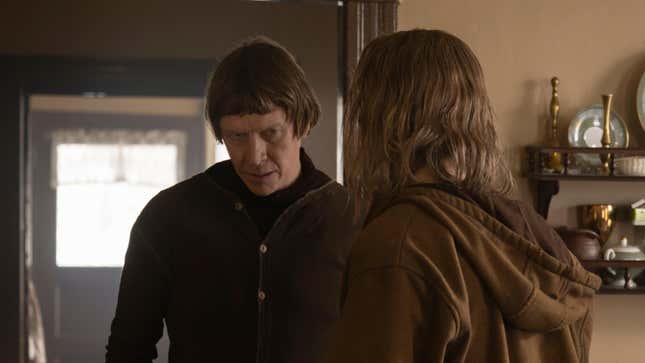As he recently discussed on the Nerdist podcast, Thomas Lennon and fellow The State alumni Robert Ben Garant and Kerri Kenney-Silver made a lot of failed TV pilots in the period between Viva Variety and the success of Reno 911! Now Lennon has made some of those pilots available to watch online through Nerdist, including the original pitch for Reno, which was thrown together in a month after Fox abruptly cancelled another show Lennon was developing. (The network rejected the Reno pilot, too, but Comedy Central eventually picked it up.) Along with Reno, Lennon also released two other pilots that Fox passed on: Hey Neighbor, a sitcom starring Michael Ian Black, and U.S.S. Alabama, a debauched space opera that Lennon pitched to FX in 2011 and that featured Natasha Leggero and Eddie Izzard.
The Reno 911! pilot makes it clear that the improvised Cops parody was fully formed from day one, with all of the show’s basic elements on full display: dumb cops, dumb criminals, and a lot of gags about hapless camera operators. Most of the cast was there, too, with Wendi McLendon-Covey’s Clementine the only missing officer (replaced by Amy Brassette as Katie the meter maid). Plenty of the pilot’s gags made it into the series, as well, including the bit where Garcia and Jones get harassed by a mime, and Lennon’s monologue about why Jim Dangle is never seen without his signature bike shorts. The biggest difference, really, is Kenney-Silver’s Trudy Wiegel, who shows up in the pilot with the same character beats but covered in make-up and giant grandma glasses, a long way from the aggressively plain appearance Wiegel rocked on the show.
Meanwhile, Hey Neighbor is a good demonstration of why you don’t see most of The State crew working much in traditional sitcoms. Starring Michael Ian Black and Julia Campbell as an affluent married couple forced to move to Illinois by the Witness Protection Program, the show attempts to marry its cast’s highly developed ironic sensibilities with the beats of a laugh-track-driven sitcom, to very mixed effect. It gets better when the pilot follows various characters (including Lennon and Kenney-Silver as the couple’s boorish neighbors) into more sketch-like vignettes, but nobody seems to be operating in very comfortable waters.
U.S.S. Alabama, on the other hand, feels like a natural outgrowth of Reno, taken to its weirdest extremes. The Star Trek parody takes the undercurrents of perversion and sexual frustration that run through the Reno Sheriff’s Department and brings them to the forefront, stuffing everyone into fetish gear and setting the whole thing in space. The pilot sees the crew of the titular starship, including Lennon as Acting Captain Glen Frenchman and Rob Huebel as unhinged sniper Briggs, facing off against a classic Trek-type villain: a God-like alien, played with blithering perfection by Eddie Izzard, who grows increasingly disgusted as the crew fails every test of humanity laid before them. It’s wholly unsurprising that FX didn’t bite on this one, given all the gratuitous nudity, casual racism, and graphic, man-on-man interspecies sex in the pilot. Which is a shame, really, because Alabama is damn funny, and the cast is all top-notch, with stand-outs including Alex Fernie as a rule-minded information office and Natasha Leggero as the ship’s blankly cheerful “sex robot.”













